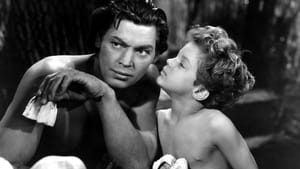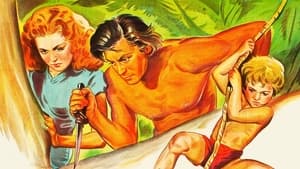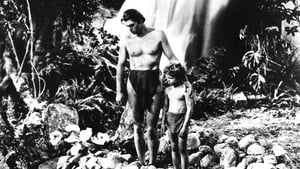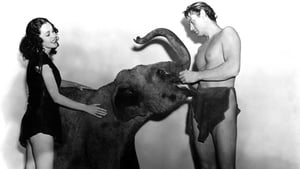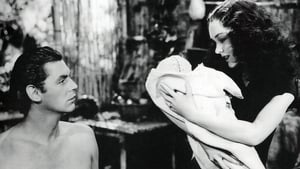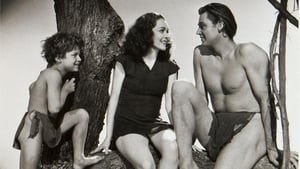Contact: [email protected]
Video Sources 0 Views
- Watch trailer
- Tarzan Finds a Son!

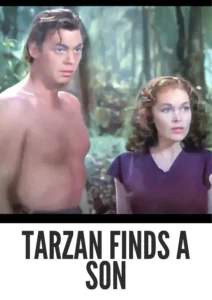
Synopsis
Table of Contents
ToggleReview: In Tarzan Finds a Son! (1939) – A Timeless Adventure Unfolds in Vivid Color

Introduction
“In Tarzan Finds a Son!” (1939) stands as a testament to the enduring appeal of the legendary jungle hero and his thrilling adventures. In this article, we’ll explore the significance of this early colored film, delving into its impact on audiences and its lasting legacy in the realm of adventure cinema.
Check The Full Colorized Movies List
Check Our Colorized Movies Trailer Channel
Understanding Tarzan Finds a Son! 1939: Director, Cast, and Genre
Directed by Richard Thorpe, “Tarzan Finds a Son!” (1939) exemplifies the spirit of adventure and exploration that defines the Tarzan franchise. The film features Johnny Weissmuller in the iconic role of Tarzan, alongside Maureen O’Sullivan as Jane, as they navigate the dangers of the jungle while caring for their adopted son, Boy. Blending elements of action, romance, and family drama, “Tarzan Finds a Son!” (1939) captivates audiences with its breathtaking scenery and heart-pounding thrills.
Exploring the World of Tarzan Finds a Son! 1939: Plot and Characters
At its core, “Tarzan Finds a Son!” (1939) follows the exploits of Tarzan and Jane as they discover a young orphaned boy in the jungle and raise him as their own. As Boy grows up among the animals of the jungle, he learns the ways of the wild and becomes an integral part of Tarzan’s family. Together, they embark on a series of adventures, facing off against ruthless poachers and treacherous adversaries in their quest to protect their home and loved ones.
The Art of Film Colorization
Film colorization serves as a transformative tool that enhances the visual experience of classic movies, breathing new life into timeless stories and captivating audiences with vibrant hues. By digitally adding color to black and white films, colorization allows viewers to immerse themselves in the rich tapestry of cinematic worlds, exploring every nuance and detail with fresh eyes and renewed appreciation.
Early Colored Films: A Brief History
The history of colored films traces its roots back to the early days of cinema, with filmmakers experimenting with various techniques to add color to their creations. From hand-tinted frames to early Technicolor processes, the evolution of colored film has been marked by innovation and ingenuity, paving the way for the development of modern colorization techniques that continue to captivate audiences to this day.
Tarzan Finds a Son! 1939 and Its Early Colored Version
The decision to release “Tarzan Finds a Son!” (1939) in a colorized format was met with both excitement and trepidation. While some welcomed the opportunity to experience the film in vibrant color, others expressed concerns about the potential impact on its visual aesthetic. Nevertheless, the early colored version of “Tarzan Finds a Son!” (1939) offers viewers a fresh perspective on the timeless tale of adventure and discovery, enhancing its immersive qualities and captivating audiences with its lush, jungle scenery.
The Debate Over Film Colorization
The debate over film colorization continues to divide audiences and critics alike, with proponents praising its ability to breathe new life into classic movies and introduce them to a new generation of viewers, while detractors argue that it compromises the artistic integrity of the original work and diminishes its historical significance. As the debate rages on, filmmakers and audiences alike are left to ponder the merits and drawbacks of colorization in the ever-evolving landscape of cinema.
Examining Tarzan Finds a Son! 1939 as an Early Colored Film
As with any colorized classic, the impact of colorization on “Tarzan Finds a Son!” (1939) is a matter of personal interpretation. Some may argue that it enhances the film’s visual appeal and immerses viewers in its world, while others may feel that it detracts from the stark beauty of the original black and white version. Regardless of one’s stance on the issue, there’s no denying the enduring power of “Tarzan Finds a Son!” (1939) as a timeless adventure that continues to capture the imaginations of audiences around the world.
Influence and Legacy: Tarzan Finds a Son! 1939’s Impact on Cinema
“Tarzan Finds a Son!” (1939) has left an indelible mark on the world of cinema, inspiring countless filmmakers and captivating audiences with its thrilling adventures and unforgettable characters. From its breathtaking jungle scenery to its heart-pounding action sequences, the film continues to resonate with viewers of all ages, reaffirming its status as a beloved classic of the adventure genre.
Director’s Cinematic Legacy: Beyond Tarzan Finds a Son! 1939
Richard Thorpe’s influence extends far beyond “Tarzan Finds a Son!” (1939), with a diverse body of work that spans multiple genres and decades. From “The Prisoner of Zenda” to “Ivanhoe,” Thorpe’s films are celebrated for their epic scope, rich storytelling, and memorable characters, solidifying his legacy as one of the preeminent directors of Hollywood’s Golden Age. Through his groundbreaking work, Thorpe has left an indelible imprint on the world of cinema, inspiring generations of filmmakers to follow in his footsteps.
Themes Explored in Tarzan Finds a Son! 1939
“Tarzan Finds a Son!” (1939) explores a myriad of themes, from the bonds of family and the power of friendship to the wonders of nature and the importance of conservation. Through its thrilling adventures and heartfelt moments, the film invites viewers to embark on a journey of discovery and exploration, where every twist and turn brings new revelations and challenges. As audiences immerse themselves in the world of “Tarzan Finds a Son!” (1939), they are reminded of the timeless lessons of courage, loyalty, and resilience that endure in the face of adversity.
Reception and Controversy Surrounding Tarzan Finds a Son! 1939
Upon its release, “Tarzan Finds a Son!” (1939) received widespread critical acclaim, with many praising its breathtaking visuals, thrilling action sequences, and heartfelt performances. However, the decision to release the film in a colorized format sparked debate among purists, reigniting the age-old discussion surrounding film preservation and artistic integrity. Despite the controversy, “Tarzan Finds a Son!” (1939) remains a beloved classic that continues to captivate audiences of all ages, reaffirming its status as a timeless masterpiece of the adventure genre.
Where to Watch Tarzan Finds a Son! 1939 Online
For those eager to experience the timeless magic of “Tarzan Finds a Son!” (1939), the film is readily available on popular streaming platforms such as Netflix, Amazon Prime, and Hulu. Whether you choose to watch it in its original black and white format or the early colored version, “Tarzan Finds a Son!” (1939) promises to transport you to a world of adventure and excitement, where the spirit of the jungle reigns supreme and anything is possible.
FAQs About Tarzan Finds a Son! 1939
Q: Is “Tarzan Finds a Son!” (1939) based on a true story? A: No, “Tarzan Finds a Son!” (1939) is a fictional tale inspired by the iconic character created by author Edgar Rice Burroughs. While the film incorporates elements of adventure and exploration, its characters and plot are products of the screenwriter’s imagination rather than historical documentation.
Q: Who are the main actors in “Tarzan Finds a Son!” (1939)? A: “Tarzan Finds a Son!” (1939) features an ensemble cast led by Johnny Weissmuller in the titular role of Tarzan and Maureen O’Sullivan as Jane, alongside a host of talented performers who bring the jungle to life with their unforgettable performances.
Q: What awards did “Tarzan Finds a Son!” (1939) win? A: While “Tarzan Finds a Son!” (1939) did not win any major awards, its impact on the world of cinema cannot be overstated. The film garnered critical acclaim for its breathtaking visuals, thrilling action sequences, and heartfelt performances, cementing its status as a beloved classic of the adventure genre.
Q: Why was “Tarzan Finds a Son!” (1939) released in a colorized format? A: The decision to release “Tarzan Finds a Son!” (1939) in color was made to introduce the film to a new generation of viewers and enhance its visual appeal for modern audiences. While the choice to colorize the film sparked debate among purists, it ultimately allowed “Tarzan Finds a Son!” (1939) to reach a wider audience and ensure its continued relevance in the annals of cinematic history.
Conclusion
As we journey through the untamed jungles of the African wilderness and the hearts of its iconic characters, let us remember the enduring legacy of “Tarzan Finds a Son!” (1939). Whether viewed in its original black and white format or the early colored version, the film continues to captivate audiences with its timeless tale of adventure, friendship, and the enduring bond between man and nature. So, whether you’re a seasoned Tarzan fan or a curious newcomer, take a moment to experience the magic of “Tarzan Finds a Son!” (1939) and discover the wonders of the jungle as never before.
